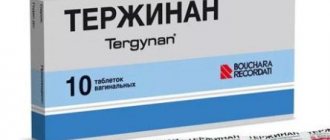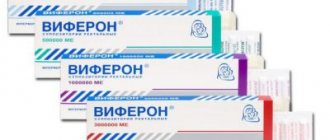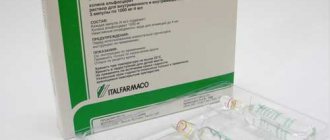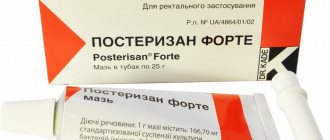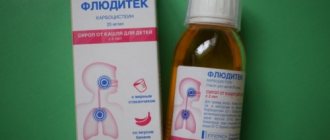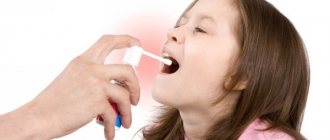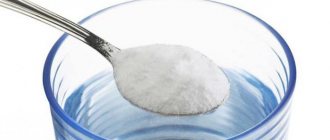Betadine is a Hungarian antiseptic drug, which is registered in Ukraine, has an antimicrobial and disinfectant spectrum of action and destroys 25 varieties of bacteria, 9 fungi that form spores and 12 viruses in “half a minute.”
The drug contains a polymer depot complex of povidone-iodine, which has a bactericidal effect: it comes into contact with the skin and mucous membranes by releasing free iodine, which reacts in a coagulation reaction with the proteins of bacterial cells and viral particles, which leads to the death of microorganisms.
In what cases is Betadine prescribed?
Betadine solution is used in surgery, gynecology and burn medicine:
- for antiseptic treatment of the hands of medical personnel and instruments,
- preparation for operations and biopsies, laboratory tests and clinical tests,
- when inserting catheters,
- as an emergency treatment for burns, wounds and skin damage from infected biomaterials.
To disinfect hands, three ml of the solution without dilution is applied to the palms for thirty seconds and allowed to dry. Betadine gargle is used in solution to eliminate bacterial infection in the tonsils. The medicine is diluted in water at room temperature or physiological sodium chloride solution in the proportion: 10 ml of medication per 100 ml of solvent.
The dosage form should not be diluted with hot water, as the therapeutic effect of the drug slows down.
Betadine ointment is prescribed in complex treatment:
- skin lesions caused by fungi and bacteria,
- to prevent infection of wounds with bedsores and trophic ulcers, cuts and minor burns.
Apply the ointment to cleaned and dried areas of the skin once or twice a day. The course of treatment is two weeks.
To prevent suppuration, the ointment is used once or twice a week in consultation with the doctor.
Betadine's analogs
The cost of Betadine depends on the form of release and packaging. The solution is available in pharmacies in volumes of 30, 100 ml and 1 liter, the price of the medicine is 170–260, 320–450 and 850–1080 rubles, respectively. Suppositories are packaged in blisters of 7 pieces, 1 or 2 blisters per package. Seven Betadine candles cost 420–540 rubles, 14 pieces cost 530–680 rubles. The ointment is available in a 20 g tube, the cost of this dosage form is 240–330 rubles.
The drug Betadine has a number of advantages:
- does not contain alcohol, purified water is used as a base, so patients do not notice a burning sensation when applied;
- affects most pathogens;
- variety of release forms - solution and ointments to prevent infection or treat emerging diseases of the skin and mucous membranes, suppositories are used in gynecology;
- is easily washed off with water, despite the coloring of the skin;
- Possibility of application to an open wound;
- safety - the drug is approved for children and adults, except for newborns and prematurity.
Betadine analogues differ in composition, release form, indications, safety, application features, and price. For convenience, they are divided into 3 categories - substitutes for solution, ointment and suppositories.
Analogs in Russia with prices
| Analogue | Price, in rubles | Manufacturer country |
| Betadine | 170-1080 | Hungary |
| Fukortsin | 40-130 | Russia |
| Iodinol | 30-110 | Russia |
| Chlorhexidine | 6-240 | Russia |
| Clotrimazole | 30-380 | Russia |
| Iodine | 5-80 | Russia |
| Terzhinan | 390-630 | France |
| Levomekol | 130-190 | Russia |
| Sintomycin | 60-140 | Russia |
| Panthenol | 100-290 | Russia |
| Levosin | 80-140 | Russia |
| Stellanin | 360-530 | Russia |
| Hexicon | 260-390 | Russia |
| Pimafucin | 260-590 | Italy |
| Livarol | 490-940 | Russia |
| Polygynax | 360-740 | Switzerland or France |
| Klion D | 340-470 | Russia or Hungary |
How can I replace Betadine solution?
The medicine Betadine in the form of a solution is used to treat the skin and mucous membranes, stains the area of application and is easily washed off with water. Since it is made using water, it does not sting or burn when applied. The advantage of the drug is its wide spectrum of action, safety, and can be used by children. Unlike some analogues (iodine, brilliant green), Betadine can be applied to the wound itself; these substitutes are only applied around it.
Fukortsin
Manufacturer: Samaramedprom, Lekker, Yaroslavl FF, etc., Russia
Release form: solution
Active ingredient: fuchsin, boric acid, phenol, resorcinol
A cheap analogue of Betadine is an alcohol solution with antiseptic and antifungal properties, “pink green”. It is used topically for superficial wounds, cracks, abrasions, erosion, fungal skin diseases and pustules. Available in regular bottles or bottles with a spatula for easy application and in pencil form. The frequency of application is determined by the doctor, on average 2–4 times a day. After the solution has dried, treatment with other ointments or pastes is possible.
Iodinol
Manufacturer: Ivanovskaya FF, Tula FF, Russia
Release form: solution
Active ingredient: iodine, potassium iodide, polyvinyl alcohol
An analogue of Betadine solution is the domestic drug Iodinol, dark blue in color. Has antiseptic and bactericidal effects. It is used in the treatment of ENT diseases (otitis, rhinitis, tonsillitis), in dentistry (periodontitis), dermatology and surgery (purulent wounds, burns and trophic ulcers). Not used in the treatment of children under 18 years of age.
Chlorhexidine
Manufacturer: Pharmproekt, YuzhFarm, Update, etc., Russia
Release form: aqueous and alcohol solution, suppositories
Active ingredient: chlorhexidine
A substitute for Betadine solution is the drug Chlorhexidine, water or alcohol is used as a solvent. Advantage – low price. The antiseptic has antifungal, bactericidal, antiviral effects. Does not stain skin or clothing.
Betadine analog Chlorhexidine is used in the following cases:
- STD prevention;
- disinfection of the skin after visiting public places, disinfecting the hands of medical staff and surfaces;
- purulent, infectious diseases of the skin and mucous membranes, wounds, burns, bedsores;
- in dentistry for rinsing and irrigation;
- in gynecology, surgery, dermatology.
The Betadine analogue is available in small (100 ml) and large (1000 ml) bottles.
Clotrimazole
Manufacturer: Akrikhin, Russia
Release form: ointment, cream, solution, suppositories
Active ingredient: clotrimazole
The drug Clotrimazole is an analogue of Betadine with predominantly antifungal properties. Used to treat skin and mucous membranes twice a day, course up to 4 weeks.
Other analogues of the solution:
- Iodopirone - contains povidone-iodine, like Betadine, and potassium iodide, used for treating hands and surfaces in surgery and in the treatment of purulent wounds;
- Aquazan is a domestic analogue in composition with a lower cost;
- Iodovidone is another analogue containing iodine with an antiseptic effect.
Analogues of Betadine ointment
For local application to the skin, cheap analogues of Betadine ointment can be used:
- Levomekol (Levomethyl) is a domestic antimicrobial drug with a combined composition, used for the treatment of infected wounds, bedsores, in the purulent-necrotic phase.
- Sintomycin is an analogue of Betadine, used to treat burns, wounds, trophic ulcers in the absence of necrosis and pus, and has an antibacterial effect.
- Panthenol - for burns, injuries, cracks, wounds, bedsores and other violations of the integrity of the skin, approved for use in young children with diaper rash and dermatitis, in nursing mothers - for cracked nipples.
- Levosin is an analogue of Betadine with a complex effect (eliminates pain, infection, inflammation, stimulates the healing of damaged tissues).
- Stellanin is an ointment with active iodine to combat tissue infection, inflammation, and heal damage.
Before making a replacement, you should read the instruction leaflet for the medications and consult your doctor. Pay special attention to indications, contraindications, method and features of use, and interactions.
Analogs of Betadine suppositories
The medication Betadine in the form of suppositories is prescribed for infectious and inflammatory gynecological diseases. Advantage: it has an antiseptic effect and does not cause pathogen resistance.
Due to its iodine content, Betadine should not be used for hyperthyroidism. For diseases of the thyroid gland, you should choose analogues of Betadine suppositories without iodine:
- Hexicon;
- Terzhinan;
- Pimafucin;
- Livarol;
- Polygynax;
- Clotrimazole;
- Klion D;
- Iodoxide is an analogue of Betadine with the same composition in the form of suppositories.
Analogues of Betadine in the form of suppositories differ in composition and action. Some fight pathogenic fungal microflora (Clotrimazole, Pimafucin, Livarol), others have a complex therapeutic effect.
Betadine use in gynecology
The drug is used in the treatment of acute and chronic diseases of the female genital organs:
- Gardnerellosis and candidiasis, trichomoniasis, genital herpes and infections that occur after taking antibiotics and steroid medications.
- For disinfection of the vagina before operations and examinations.
Women insert one suppository vaginally before bedtime. The course is one week. In severe cases of the disease, the dose is doubled and treatment is extended to two weeks.
Contraindications for use
The drug should not be prescribed for:
- hypersensitivity of the patient to the active and excipients of the drug,
- chronic renal failure,
- hypothyroidism,
- breastfeeding the baby,
- taking medications that contain radioactive iodine,
- benign formations in the thyroid gland, in which the synthesis of hormones increases,
- dermatitis herpetiformis.
The medication is not used in the treatment of premature and newborn babies due to increased permeability of skin areas to iodine-containing components, which increases the risk of hypothyroidism.
The antiseptic is not recommended for use by women who are in the third month of pregnancy.
Betadine suppositories are not prescribed when planning the birth of a baby, as sperm are destroyed when the medicine is administered.
pharmachologic effect
Manufacturer: Egis, Hungary
Release form: solution, vaginal suppositories, ointment
Active ingredient: povidone-iodine
Betadine is an antiseptic, a replacement for iodine and brilliant green. The drug contains povidone-iodine. It reacts with microorganisms on the skin and mucous membranes (fungi, viruses, protozoa, bacteria), causing their death.
When used, a short-term staining of the area occurs, which is easily washed off with water.
Popular questions about Betadine
How to use Betadine?
The solution is used to disinfect palms - three milliliters of undiluted medicine is applied to the surface of the hands for thirty seconds and allowed to dry to destroy viruses and germs. The ointment is applied to cleansed and dry skin once or twice a day. The course of treatment is two weeks. Women insert one suppository into the vagina before bed for a week.
How to dilute Betadine solution?
To gargle and reduce inflammation in the tonsils, the medication is diluted in water or sodium chloride at room temperature according to the following scheme: 10 ml of solution in 100 ml of solvent. Do not use hot water to dissolve the medication, as the pharmacological effect of the drug is reduced.
How often can Betadine suppositories be used?
The course of therapy is one to two weeks depending on the patient’s condition. Treatment is not interrupted during menstruation.
Where can you buy Betadine?
The drug can be purchased in pharmacies of the 9-1-1 retail network, which has 900 branches throughout Ukraine, or you can book it on the 9-1-1 Pharmacy website and buy it at the pharmacy closest to your place of residence or at a pharmacy convenient for you.
Betadine or Hexicon - which is better?
Manufacturer: Hemofarm or Nizhpharm, Russia
Release form: vaginal tablets
Active ingredient: chlorhexidine
Betadine and Hexicon suppositories are analogues and are active against protozoa, bacteria, viruses and fungi. Used intravaginally once a day for 7–14 days.
Betadine contains iodine and is therefore contraindicated in hyperthyroidism and pregnancy.
Hexicon is used during pregnancy and preserves the vaginal microflora. For children there is a special form of release of the analogue - Hexicon D.
What to choose - Betadine or an analogue, depends on the indications and the presence of contraindications. Consultation with a gynecologist is recommended.
Note!
The description of the drug Betadine on this page is a simplified author’s version of the apteka911 website, created on the basis of the instructions for use.
Before purchasing or using the drug, you should consult your doctor and read the manufacturer's original instructions (attached to each package of the drug). Information about the drug is provided for informational purposes only and should not be used as a guide to self-medication. Only a doctor can decide to prescribe the drug, as well as determine the dose and methods of its use.
Betadine or Terzhinan - which is better?
Manufacturer: Sofartex, France
Release form: vaginal tablets
Active ingredient: ternidazole, neomycin, nystatin, prednisolone
Terzhinan is an analogue of Betadine suppositories, which has anti-inflammatory, antibacterial, and antifungal effects. It is used in gynecology for infectious and inflammatory diseases caused by microorganisms sensitive to the drug. Can be used for preventive purposes by pregnant women, strictly as prescribed by a doctor.
The drug Betadine is an antiseptic based on an iodine compound. Not used for hyperthyroidism. Indications: gynecological diseases of an infectious nature.
The drug Terzhinan is more perfect - it contains the properties of four components at once. Disadvantage: with frequent use, the pathogen may become resistant to the active substances.
What to choose - Terzhinan or Betadine, it is recommended to decide with the observing gynecologist. Mechanisms of action, components, contraindications for analogues are different.

